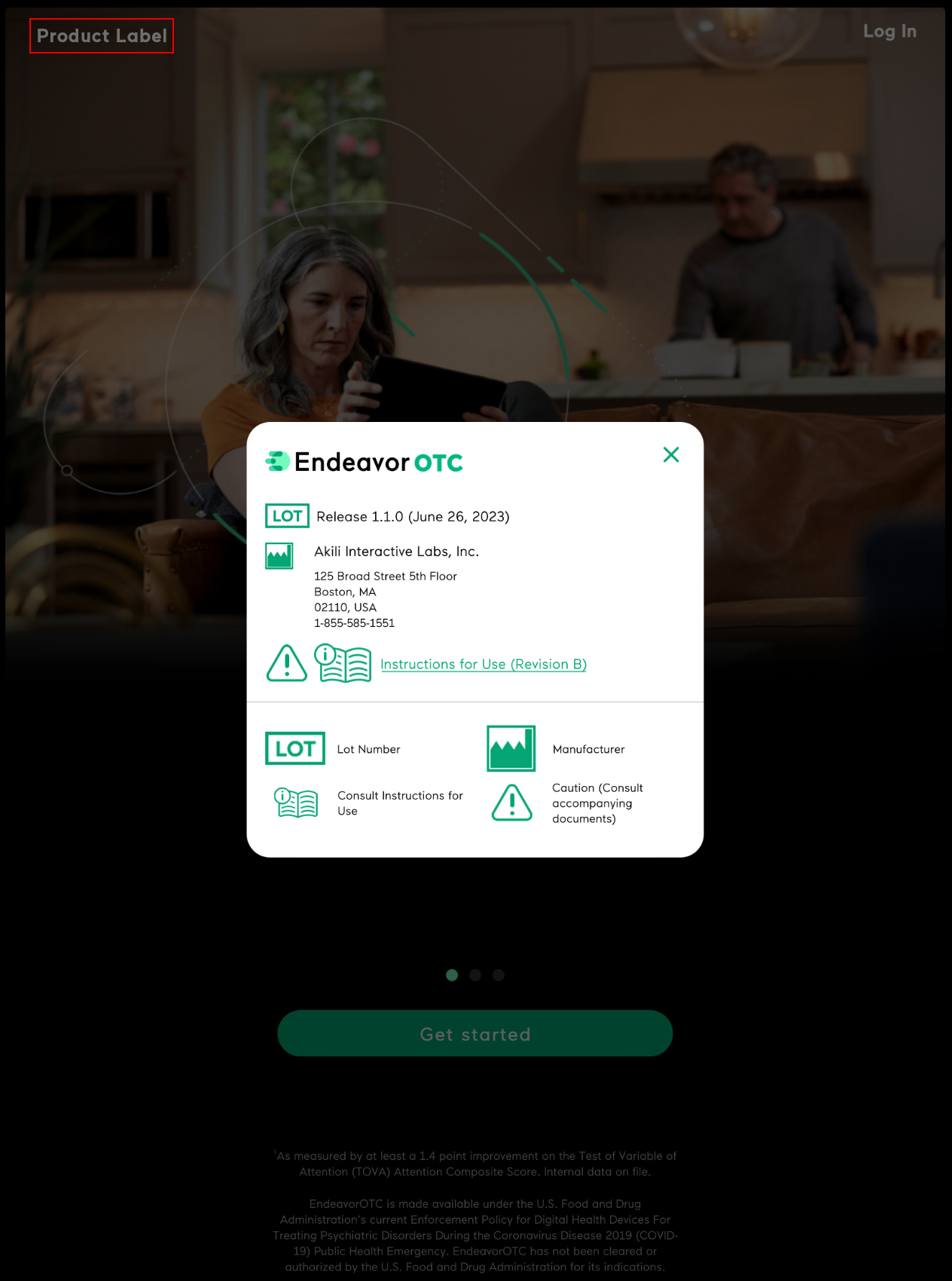Why Are People with ADHD Seeking Digital Therapeutics (DTx)? Evidence From Our Research Study

If you’re here, you may be considering trying out a digital therapeutic (or a DTx) for ADHD, or curious to learn more about whether a digital therapeutic may be helpful for you. As part of our commitment to understanding how EndeavorOTC helps users with ADHD in the real world, Akili is currently conducting a registry study, in which we collect real-world data on our patients engaged in treatment.
Our EndeavorOTC registry study began at the end of 2023, so we’re still collecting data and learning from users. But we’ve already gleaned some valuable insights from our data to help understand why people with ADHD are turning to DTx like EndeavorOTC for help managing their symptoms.
Who uses EndeavorOTC?
Of the EndeavorOTC users participating in the registry study so far, slightly more than half (56%) are female, which is consistent with what we know from the research about rates of ADHD diagnoses being equal across genders in adulthood. The majority (58.2%) have combined type ADHD, meaning they experience both inattentive and hyperactive symptoms. More than two thirds (69%) report depression symptoms, and 56% report having an anxiety disorder.
Why do people seek out a DTx for their ADHD?
It’s no secret that mental health treatment can be challenging to access. When it comes to ADHD, there is a known deficit of behavioral health providers, and the stimulant shortage has made it challenging for many to reliably access their medication. Among EndeavorOTC users, 61% are taking medication for their ADHD alongside EndeavorOTC, and a quarter (25%) say they are trying EndeavorOTC because of difficulty obtaining their ADHD medication.
Another reason people seek novel medical treatments like digital therapeutics or DTx is that even the gold-standard treatments for ADHD (medication and behavioral therapy) have limitations, and for many, there are still bothersome symptoms that persist while using these treatments. Among our users, only 13% report good to excellent symptom control with their existing ADHD treatments like medication, which leaves 87% with no to moderate symptom control. The majority (64%) say they are trying EndeavorOTC “to address symptoms not helped by my current therapies.”
In short, people with ADHD are turning to DTx because they are accessible and help fill in the gaps to provide comprehensive ADHD symptom management.
More about our research registry methods
Curious how the paid research registry study works? We send an email invitation to new EndeavorOTC subscribers inviting them to participate in the research registry study. Those who provide informed consent are sent a baseline survey and assessment measuring a range of clinical outcomes. Participants then complete follow-up surveys at a regular cadency (monthly or every three months), up to a year after beginning treatment. In future blog posts as we obtain more follow-up data, we’ll be able to share how ADHD symptoms change over time in our real-world EndeavorOTC users.
How can I join the paid EndeavorOTC registry study?
To be part of the registry, you must have an active EndeavorOTC subscription. Then send an email to [email protected] to let us know you’re interested!
About the Author
-
Caitlin Stamatis, PhD, is a clinical psychologist and researcher focused on novel uses of technology for mental healthcare. Her 40+ scientific publications have been featured in leading journals such as Nature Partner Journal: Mental Health Research, Depression & Anxiety, and Emotion. Dr. Stamatis has spent her career leading clinical research and product development to build and evaluate new digital mental health treatments, at both big companies like Google and more rapidly growing, specialized digital therapeutics companies like Akili. 
